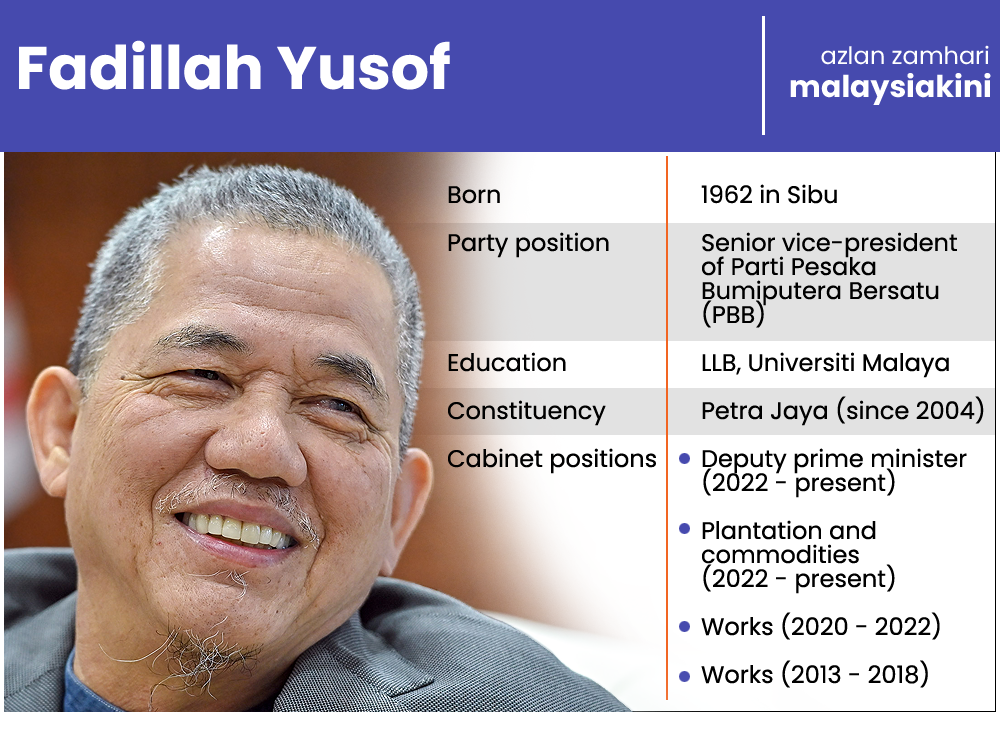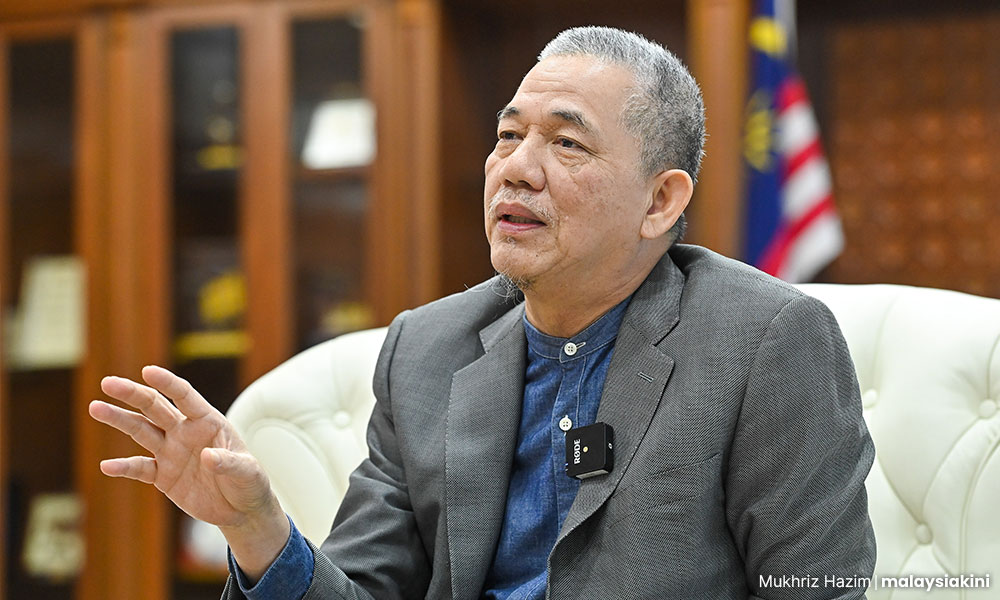INTERVIEW | The attempt to reserve 35 percent of Dewan Rakyat seats for Sabah and Sarawak was necessary to uphold the spirit of the Federal Constitution - which provided protections for the two territories, Deputy Prime Minister Fadillah Yusof said.
In an interview with Malaysiakini, Fadillah explained that when Malaysia was formed, 35 percent of the seats were intentionally allocated to Sabah, Sarawak and Singapore.
This, explained Fadillah, meant that Malaya would not be able to amend the Federal Constitution without the consent of the three other member states.
However, upon Singapore's separation from Malaysia in 1965, the number of seats for Sabah and Sarawak was kept at approximately 25 percent to this day.
"But right now, if seats in Peninsular Malaysia are more than two-thirds, they can vote and remove all the rights accorded to Sabah and Sarawak.
"So that's the spirit (of the Constitution). Rightfully, when we formed (Malaysia), we must have that protection," he said.
The "35 percent" goal was one of the key conclusions of the Special Council on the Malaysia Agreement chaired by then-prime minister Ismail Sabri Yaakob in September last year.
However, the only coalition which promised "35 percent" for the 2022 parliamentary election was Pakatan Harapan, whose leader, Anwar Ibrahim, is now the prime minister.

Critics of the "35 percent" policy have pointed to the fact that Sabah and Sarawak amounted to only one-sixth of the population and thus, should not control a third of the seats in the Lower House.
However, Fadillah disagreed that this made the "35 percent" policy unfair because Sabah and Sarawak are still lagging behind in many aspects, compared with their peninsula counterparts.
"You have everything in ‘semenanjung’ (the peninsula). You have highways and bridges. All the facilities are there.
"Yet, Sabah and Sarawak are left behind when, in fact, economy-wise we have contributed so much.
"You have your (Petronas) Twin Towers. (But Sarawakians) are saying that it should be in Sarawak (because of our petroleum production).
"If you are talking about fairness, it is not about fairness (alone). It is (also) about the spirit behind the formation of Malaysia," he said.
The "35 percent" policy is among the matters being deliberated by the MA63 Implementation Action Council, which Fadillah heads.
Fadillah said the council scored its first major milestone in January when it convinced Putrajaya to increase annual grants for Sabah and Sarawak to RM260 million and RM300 million, respectively, for the next five years.
These annual grants are mandated under Article 112D of the Federal Constitution and are supposed to be reviewed every five years.

For Sabah, this deal replaces the deal struck last year between the Ismail Sabri administration and the Sabah government - which increased annual special grants to RM125.6 million.
As for Sarawak, the special grant was a massive increase from the RM16 million that it had been receiving annually - an amount not changed since 1969.
Fadillah said Sarawak considered this an "interim payment" pending a new formula being discussed between the Sarawak government and the Finance Ministry.
"My responsibility (as the head of the action council) is to get the Finance Ministry and the state government to sit down and come to an agreement," he said.
Fadillah added that the action council's other priority was to devolve administrative powers on education and public health.
He explained that centralised planning by Putrajaya over the decades had caused Sabah and Sarawak to be left behind in terms of resources.
"For example, in terms of human resources, when there is a vacancy in Sabah and Sarawak, the processing will be done in Kuala Lumpur.
"When someone (from Peninsular Malaysia) is offered a job in Sabah and Sarawak, they will usually appeal because they do not want to serve in the remote areas.
"So (for the administration) the post is filled, yet there's nobody there. If (the recruitment) was handled by Sarawak, the applicants will know there is no choice. They must go to Sarawak and serve," he said. - Mkini
Andrew Ong contributed to this article.




No comments:
Post a Comment
Note: Only a member of this blog may post a comment.